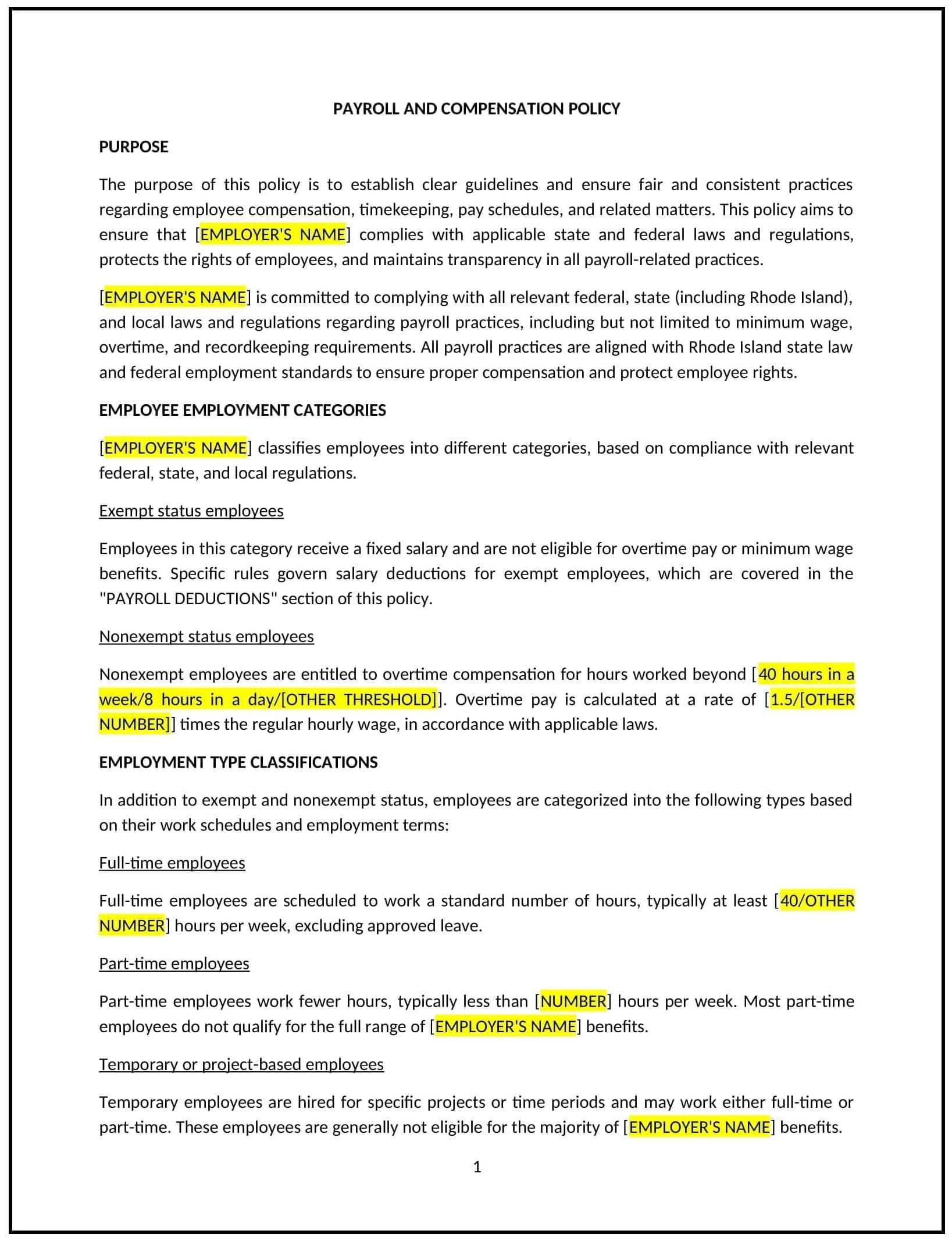Payroll and compensation policy (Rhode Island): Free template
Got contracts to review? While you're here for policies, let Cobrief make contract review effortless—start your free review now.

Customize this template for free
Payroll and compensation policy (Rhode Island)
This payroll and compensation policy is designed to help Rhode Island businesses establish guidelines for paying employees accurately and on time. It outlines procedures for calculating wages, issuing paychecks, and addressing payroll errors.
By adopting this policy, businesses can strengthen compliance with Rhode Island labor laws, maintain employee trust, and streamline payroll processes.
How to use this payroll and compensation policy (Rhode Island)
- Define scope: Clarify which employees are covered and the types of compensation included, such as wages, bonuses, and overtime.
- Establish pay periods: Specify how often employees will be paid, such as weekly, biweekly, or monthly.
- Address overtime: Provide guidelines for calculating and paying overtime in compliance with Rhode Island law.
- Set procedures for errors: Outline steps for addressing payroll errors, including corrections and communication with employees.
- Communicate expectations: Share the policy with employees and include it in the employee handbook.
- Train payroll staff: Educate payroll administrators on accurate wage calculations and compliance with labor laws.
- Review and update: Assess the policy annually to ensure it aligns with Rhode Island’s evolving labor laws.
Benefits of using this payroll and compensation policy (Rhode Island)
This policy offers several advantages for Rhode Island businesses:
- Ensures compliance: Aligns with Rhode Island labor laws, such as minimum wage and overtime requirements.
- Maintains trust: Demonstrates a commitment to paying employees accurately and on time.
- Reduces errors: Provides clear procedures for calculating wages and addressing payroll mistakes.
- Enhances transparency: Communicates pay practices clearly to employees, reducing confusion or disputes.
- Streamlines processes: Standardizes payroll procedures, improving efficiency and accountability.
Tips for using this payroll and compensation policy (Rhode Island)
- Communicate the policy: Share the policy with employees and include it in the employee handbook.
- Provide training: Educate payroll administrators on accurate wage calculations and compliance with labor laws.
- Monitor compliance: Regularly review payroll processes to ensure adherence to the policy.
- Address issues promptly: Take corrective action if payroll errors or disputes arise.
- Update regularly: Assess the policy annually to ensure it aligns with Rhode Island’s evolving labor laws.